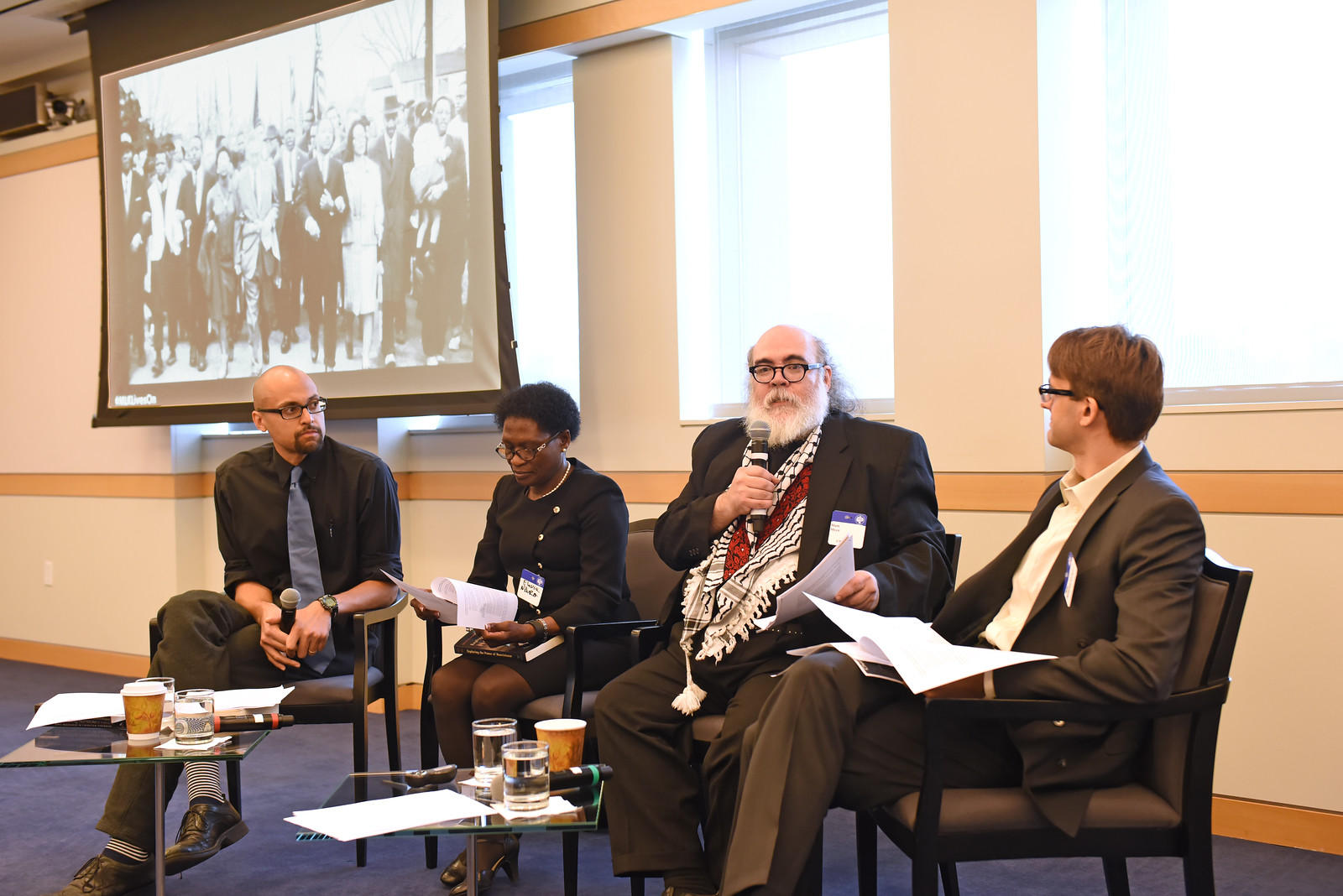Dr. Martin Luther King’s Path to Peace
Reclaiming and Renewing Nonviolent Responses to 'Globalized Crises'
Violence from global conflict is on a steady rise. War, oppression and other miseries have uprooted 60 million people, the greatest human displacement ever recorded. Foreign policy debates include calls for solving these problems with military action or other force. Dr. Martin Luther King believed that only nonviolent action can ultimately build peace and justice. But how? On April 4, the somber anniversary of Dr. King’s assassination, USIP held a forum on ways to reclaim and re-frame nonviolent action against 21st-century global conflicts, extremisms, and injustices that fuel them. Researchers and activists discussed their recent or forthcoming books on nonviolent action and joined an audience-wide conversation and poll.

In the 48 years since Dr. King was killed our world’s population has doubled. Crises that once were local or national are increasingly global. Their imagery, in 24/7 media coverage that did not exist in Dr. King’s day, fuel heated public discussion, in Europe, the United States and elsewhere, of how to respond.
USIP included participation in this event by holding an informal poll question on which excerpts from Dr. King’s writings are most relevant in 2016. The poll’s results opened the conversation on April 4.
Panelists in the forum have argued that seeing the current possibilities for nonviolent action requires that we more fully see its history. Author Matt Meyer is among scholars and activists who contend that the popular image of Dr. King has become blurred in a way that obscures what was his truly radical approach to justice and peace. Dr. Maciej Bartkowski points out in a 2013 book, Recovering Nonviolent History, that mainstream narratives have underestimated the worldwide role of nonviolent civil resistance, notably in national independence struggles. Prof. Elavie Ndura is co-editor of Exploring the Power of Nonviolence, which notes lessons on how nonviolent action can be most effective.
In an unusually interactive forum, the panelists posed critical questions of the audience, whose initial answers were used to shape the conversation around the room.
A half-century later, Dr. King’s message offers an indispensable approach for efforts to address global violence. Continue the conversation on Twitter with #MLKLivesOn.
Speakers
Matt Meyer
Educator, activist, and author
Dr. Maciej Bartkowski
Senior Director for Education, International Center on Nonviolent Conflict
Dr. Elavie Ndura
Presidential Fellow and Professor of Education, George Mason University
Daryn Cambridge, Facilitator
Senior Program Officer, U.S. Institute of Peace



